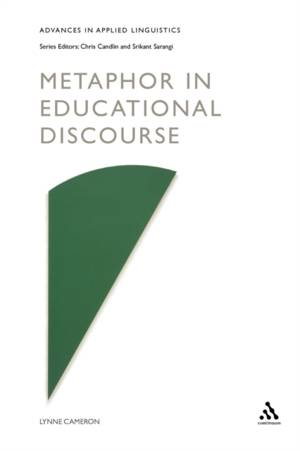
- Afhalen na 1 uur in een winkel met voorraad
- Gratis thuislevering in België vanaf € 30
- Ruim aanbod met 7 miljoen producten
- Afhalen na 1 uur in een winkel met voorraad
- Gratis thuislevering in België vanaf € 30
- Ruim aanbod met 7 miljoen producten
Zoeken
Omschrijving
'Metaphor in Educational Discourse is a superb piece of applied linguistics research that integrates Vygotsky's theory of concepts with current work on metaphor into a coherent framework for investigating how teachers and learners negotiate figurative language in order to promote development in the classroom setting. In what is likely to become the standard for future studies in this area, Lynne Cameron meticulously demonstrates the central role of linguistic metaphors in classroom learning - designed to lead learners to a deeper understanding of complex mathematical and scientific concepts.' James P. Lantolf, Professor of Applied Linguistics, The Pennsylvania State University. This book reports research into metaphor in use with school students. The setting for the research is a UK school and the participants are around ten years old, with their first language well established but still developing concepts and understandings. Close examination of a corpus of classroom spoken discourse reveals how metaphor is employed by their teachers, not just in explaining ideas, but, in managing and mediating the activity of the classroom and the learning of the students. Particular issues discussed include: the problems of identifying metaphors in spoken discourse, the conventionalism of metaphors in the discourse of socio-cultural groups, and how a socio-cultural approach can account for systematicity in metaphor use.
Specificaties
Betrokkenen
- Auteur(s):
- Uitgeverij:
Inhoud
- Aantal bladzijden:
- 306
- Taal:
- Engels
- Reeks:
Eigenschappen
- Productcode (EAN):
- 9780826449405
- Verschijningsdatum:
- 15/03/2003
- Uitvoering:
- Paperback
- Formaat:
- Trade paperback (VS)
- Afmetingen:
- 154 mm x 231 mm
- Gewicht:
- 489 g

Alleen bij Standaard Boekhandel
+ 339 punten op je klantenkaart van Standaard Boekhandel
Beoordelingen
We publiceren alleen reviews die voldoen aan de voorwaarden voor reviews. Bekijk onze voorwaarden voor reviews.








